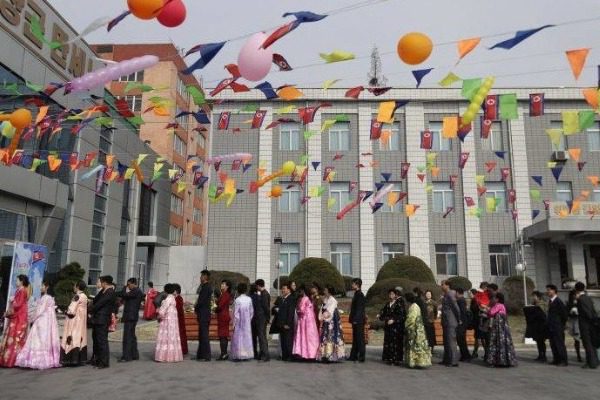North Koreans are coming to the polls today
North Koreans are going to the polls today for the parliamentary elections, from which it is predicted who will be the winner.
Leader Kim Jong Un's ruling Labor Party has sole control of power in the isolated but nuclear-armed country, but elections are held every five years to elect members of the House of Commons of the People's Republic of South Korea.
In accordance with one of the main slogans of the country "unity in determination", the ballot papers in the respective constituencies contain only one name per district, that of the pre-selected candidate.
According to APE, voters can theoretically vote against any nominated candidate, deleting his name, but such cases have never been known.
For the elections, the country is divided into constituencies. In the previous election, in 2014, there were 686 and Kim himself was a candidate for Mount Paektu, a volcano that dominates the Sino-Korean border and is considered a sacred place of worship for Koreans. Of course, according to state media, Kim received 100% of the vote.
Some of the seats in Parliament are always expected to be filled by two smaller parties, the Social Democratic Party of Korea and the Songdu Party of Songdu, which has its origins in a 20th-century religious movement in Korea. Both of these parties are allies of the ruling party and according to analysts have no real status, while they have only a few small offices and for propaganda purposes only.
In the previous election, the turnout was 99,97%, according to the state-run KCNA news agency. Not only foreign workers and "seafarers" went to the polls, while all candidates received 100% of the vote in their constituencies.
"We consider the entire population of our country as a family, so we can unite in the same sentiment and go to the polls to nominate the nominee," Song Yang Ran, 57, head of the Socialist Women's Union, told AFP.
In the absence of any form of electoral competition, political analysts believe that the elections have the role of a simple ritual, which serves the authorities to claim that they enjoy the popular mandate.
